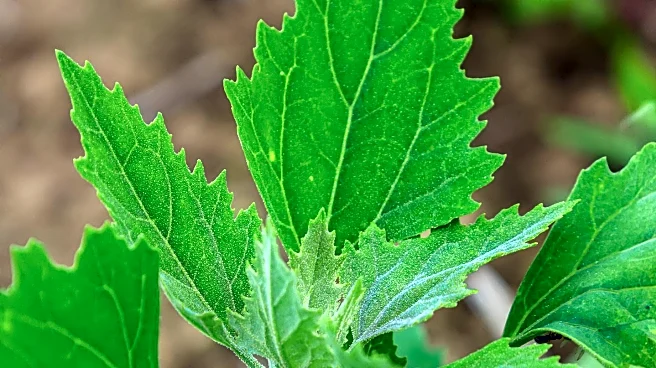What's Happening?
The Madhya Pradesh government has initiated measures to combat the spread of Melioidosis, a bacterial disease affecting paddy farmers. The disease, caused by Burkholderia pseudomallei, poses serious health risks with symptoms similar to tuberculosis. Cases have been identified in over 20 districts, particularly in areas with intensive paddy cultivation. Chief Minister Dr. Mohan Yadav has directed health and agriculture departments to conduct investigations and preventive actions, including awareness campaigns and treatment facilities. AIIMS Bhopal is organizing training sessions to enhance early detection and treatment, focusing on high-risk areas.
Why It's Important?
The government's response to the Melioidosis threat is crucial for protecting the health and livelihoods of farmers in Madhya Pradesh. By addressing the spread of this bacterial disease, the initiative aims to prevent potential health crises and economic losses in the agricultural sector. The focus on awareness and early detection highlights the importance of proactive measures in managing public health risks. As paddy cultivation expands, the risk of Melioidosis remains significant, underscoring the need for continued vigilance and support for affected communities.
What's Next?
The government and health authorities are expected to continue monitoring the situation and implementing preventive measures to control the spread of Melioidosis. Increased screenings and awareness campaigns will likely be conducted in high-risk areas, with ongoing support for farmers to adopt protective measures. The success of these initiatives could lead to improved health outcomes and economic stability for farmers, while also serving as a model for addressing similar health threats in other regions.








